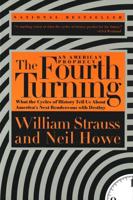Publisher's Synopsis
Hobohemia profiles various impoverished and marginalized groups living in Chicago throughout the 1920s and 1930s; together, these accounts form a social history of the urban USA.
Frank Orman Beck is neither overly sympathetic nor critical in his accounts; he efforts to make his evaluations matter-of-factly. That mass poverty, unemployment and social decay were common sights in industrialized Chicago is seldom lamented; it is simply the backdrop canvas upon which situations of plight are painted. Various ideologies claim popularity amid the disenfranchised, blossoming sporadically, be it communism, anarchism, humanism or otherwise.
Several chapters of this book constitute brief but incisive appraisals and biographies of the political activists and leaders who emerged from among Chicago's multitude of downtrodden people. Beck examines the various actions, successes, failures, strengths and flaws of these notables, keeping his analysis measured and thoroughly human. Though the author disapproves of the unhealthy degradation of the city's underworld, it is clear that he finds its dire qualities fascinating and worthy of recording for interested readers.








